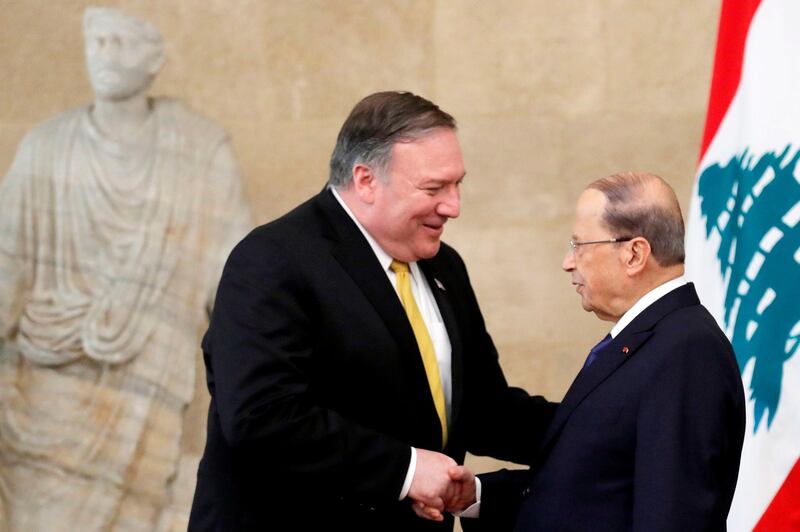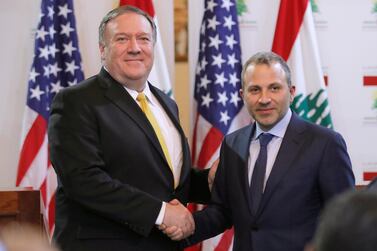US failures in the Middle East have turned the country to the "outdated and disgraced weapon of threats and intimidation", Iran's Foreign Minister said on Sunday.
The remarks follow Secretary of State Mike Pompeo's regional tour to drum up support for Washington's harder line against Tehran. Mr Pompeo said that Lebanon faced a choice – "Bravely move forward as an independent and proud nation, or allow the dark ambitions of Iran and Hezbollah to dictate your future".
According to Iranian state television, Tehran said it would would expand its ties with Lebanon in spite of the "provocative and interventionist" call by Mr Pompeo for Beirut to choose sides.
"While respecting the independence of Lebanon and the free will of its government and nation, Iran will use all its capacities to strengthen unity inside Lebanon and also to expand its ties with Lebanon," said Iranian Foreign Ministry spokesman Bahram Qasemi.
Hezbollah, whose influence has expanded at home and in the region, controls three of 30 ministries in the government led by western-backed Prime Minister Saad Al Hariri, the largest number in its history.
The dominant Shiite Muslim power Iran and Hezbollah, founded in 1982 by Iran's Revolutionary Guards, are major players in the war in Syria and the fight against militant groups opposed to President Bashar Al Assad, which include ISIS.
Mr Qasemi said that Lebanon's Hezbollah was a legal and popular party.
"How can Pompeo make such impudent and irrational remarks [about Hezbollah] while visiting Lebanon?" he said.
Tensions between Tehran and Washington have increased since US President Donald Trump pulled out of a 2015 nuclear deal between Iran and six world powers last May, then reimposed sanctions on the Islamic Republic.
The restoration of sanctions is part of a wider effort by Mr Trump to force Iran to further curb its nuclear programme and to end its ballistic missile work as well as its support for proxy forces in Yemen, Syria, Lebanon and other parts of the Middle East.







